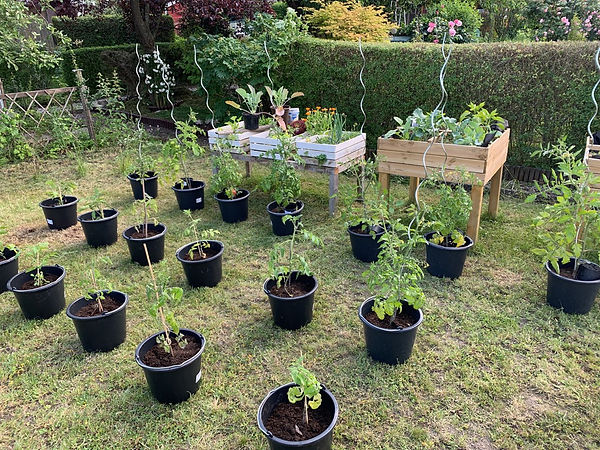.a cooped-up coup
by Ipshita, find her here.

Kitchen garden in family house in Ingolstadt, Photo L. Kreuzer
For the love of basil on pizza and pasta, a friend decided to plant her own this year. It was a newfound love of gardening, recycling water, all within the social confines of the year. While some could raise home-gardens, elsewhere, others moved their modes of transportation altogether. In a regular year, this would have been a remarkable move for the environment, nature is healing and all that. While research suggests that global carbon emissions went down by “record” 5% in 2020, individuals barely can seem to impact the world, even as a collective. I say this because this drop was not due to consistent effort, rather was a parallel “feat” owing to an unprecedented lockdown. When lifted, this would be more than supplanted by the wont of economic interests.
We’ve seen the tragedy that is Hurricane Sandy, one of the initial hazards, not just for the people, but also for the fiscal changemakers, when Wall Street shut down and resulted in losses running into billions.
Research tells us with a high degree of confidence that:
· In the Northern Hemisphere the last 30 years have been the warmest since Anglo-Saxon times;
· Atmospheric concentrations of greenhouse gases are at levels not seen in 800,000 years; and
· The rate of sea level rise is quicker now than at any time over the last 2 millennia.
The UN, the central banks, all have the power to be and transform the direction of climate change, however the latter’s response is still defensive. The focus remains on managing financial risks – introduction of green bonds or climate bonds (these are fixed-income financial instruments that have positive environmental and/or climate benefits), extensive policy changes in the insurance sector to cover physical risks (loss in value due to weather related events) and the like. While transformative risks (processing the impact to a lower-carbon economy) still need to be evaluated, and while there is a demand that has been raging socially amongst the masses, as evident from the carbon emission statistics this year, clearly, there is little individuals can do or contribute towards this global malfunctioning of sorts. Clearly, it is the large corporations and industries that need to re-evaluate processes for both manufacturing and distributing goods and services. Clearly, the call of action needs to be raised at a government, or a greater level, as the skies in my city do not seem so clear anymore*.
*The city of Delhi is annually covered in a dense smog due to unregulated crop burning. This is a local issue, but the need to regulate such actions is more global than this.
#anemergency
